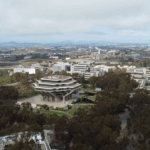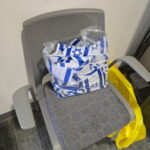Secure Reporting
What do media have to do with Homeland Security? A November 13th forum at the Heritage Foundation addressed this issue, with panelists explaining how the media shapes American and global perceptions of domestic security issues.
CBS News Correspondent Kimberly Dozier illustrated the slow death of responsible journalism. Why are Americans inundated with a barrage of fluff stories rather than informed of the daily atrocities of war? The answer, explained Dozier, is that interest in foreign news has declined. Major news stations that realize the import of sustaining coverage of overseas wars have to figure out a way to cover it “without breaking the bank,” she said.
Rather than paying the obligatory high wages for experienced reporters, many bureaus are hiring youngsters to go out in the field. Dozier described a recent trend where experienced correspondents stay in D.C. and New York and rely on news from the younger people out in the field. She said media outlets are “losing the experience on the ground,” adding that inexperienced reporters are cheaper, true, but that a botched report resulting from inexperience can cause a loss of trust among readers and viewers.
The media are necessarily acclimating to the change in media venues by adapting to high volume viewership on blogs and online rather than television news. Panelist Matt Armstrong attributed a “fragmentation of the perceptual sphere” to this increasing breadth of available sources. Readers can get their news from any number of bloggers, newspapers, or television stations, all with a different prism through which they view current events. But when anyone with a computer and half a brain can be a reporter, Armstrong questioned “who is the consumer and who is the producer of news.”
Armstrong, strategist at the Armstrong Strategic Insights Group asked what the media environment is today. Rather than use the more common phrase “new media,” he coined the term “now media”—a convergence of old (print) and new (online).
Dozier warned that, with this new information highway, responsible journalists should safeguard the balance of speed and accuracy. Similarly, Armstrong admitted that he is “constantly surprised at how shallow the reporting can be.” The day of the Fort Hood shooting, The Cypress Times quickly reported information on the incident, saying that “Lt. General Robert W. Cone has confirmed 12 people are dead and 31 have been wounded after three gunmen opened fire today at Fort Hood.” Later reports make no mention of the alleged other two gunmen. The Cypress times also reported that “General Cone also confirms that among the dead is the man the General referred to as, ‘the primary gunman.’” It turned out that the suspected gunman, Major Nidal Malik Hasan, was not, in fact, dead. This hasty and inaccurate dissemination of information is exactly the kind of shallow reporting of which Armstrong warned.
Media have a great influence beyond just shaping perceptions. It can propagate ideologies and propaganda messages. “Terrorism,” said Armstrong, “is an act of propaganda.” He claimed that terrorists are using the online world to impact perceptions and that the media and the American government does not “counter [that] narrative.” Instead, the U.S. government has a history of engaging in “terrorist mitigation,” he said, which certainly increases the cost of terrorism but also increases the value of an act of terrorism. Loud rhetoric denouncing acts of terrorism and promising retaliation might scare potential terrorists but also amplifies the voice of their actions. What needs to be done is to “undermine the utility of terrorism,” argued Armstrong, and that can only be done by refusing to give acts of terrorism publicity.
Sarah Carlsruh is an intern at the American Journalism Center, a training program run by Accuracy in Media and Accuracy in Academia.




